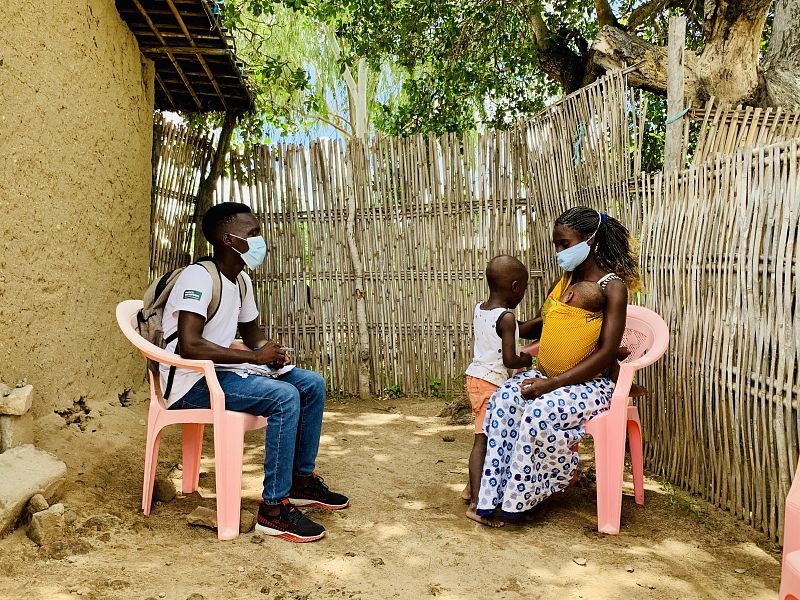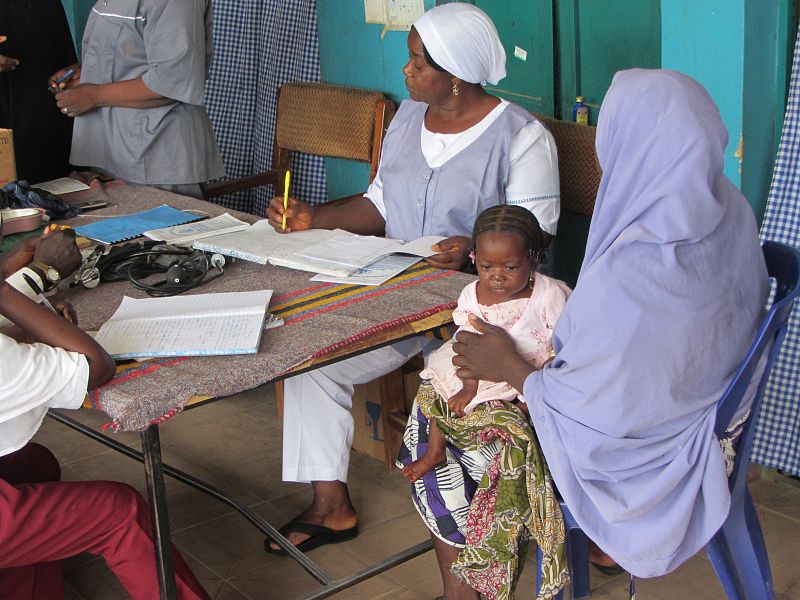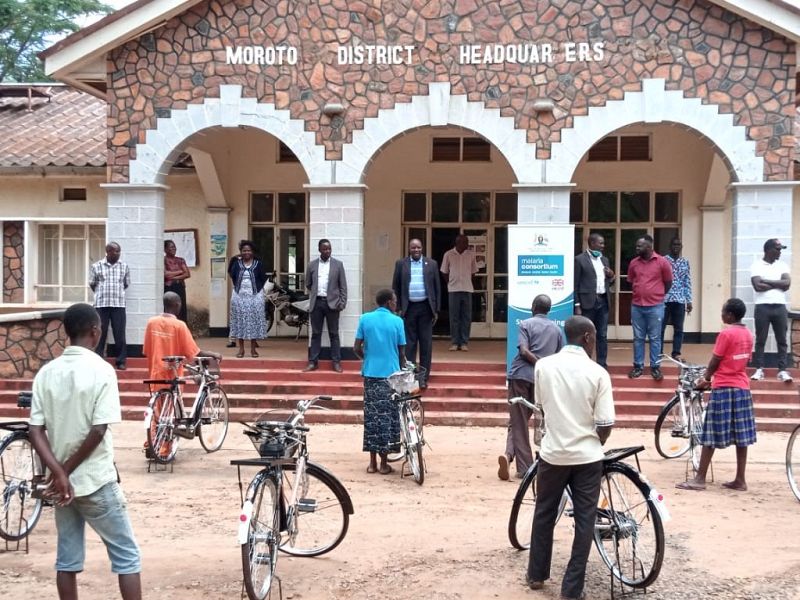Projects Database
Keyword
- ASTMH
- Advocacy
- COVID-19
- Capacity development
- Case management
- Case study
- Chemoprevention
- Child survival
- Climate
- Community delivery
- Costing and economic impact evaluation
- Data-informed decision-making
- Diagnosis
- Digital health
- Elimination
- Evidence generation
- Gender
- Genetic modification
- Health financing
- Health system strengthening
- Learning
- Logistics
- MNCH
- Malaria in pregnancy
- Monitoring and evaluation
- PMC
- Philanthropy
- Policy development
- Private sector
- Quality improvement
- Research
- Resistance management
- SBC
- SDGs
- SMC
- Scaled implementation
- Scholarships
- Surveillance
- Treatment
- Universal health coverage
- Urbanisation
- Vaccines
- Vector control
- Webinars
- iCCM
Diseases
Country
Donor
- 5% Initiative
- Bayer
- Bill & Melinda Gates Foundation
- Centers for Disease Control and Prevention (CDC)
- Comic Relief
- Department for International Development (DFID) / UKaid
- Deutsche Gesellschaft f�r Internationale Zusammenarbeit (GIZ) GmbH
- Deutsche Gesellschaft für Internationale Zusammenarbeit (GIZ) GmbH
- Economic and Social Research Council
- Eleanor Crook Foundation
- Expertise France
- Fight AIDS, Tuberculosis and Malaria, via UNICEF
- Foreign, Commonwealth & Development Office (FCDO)
- GiveWell
- Global Fund to Fight Aids, TB and Malaria
- Good Ventures
- Grand Challenges Canada
- Health Pooled Fund South Sudan
- IrishAid
- ISGLOBAL (Barcelona Institute for Global Health)
- James Percy Foundation
- KOICA Korean International Cooperation Agency
- Malaria Consortium US
- National Institute for Health and Care Research
- Office for the Coordination of Humanitarian Affairs (OCHA)
- Philanthropic funding; Global Fund; DFID
- Planet Wheeler Foundation
- President's Malaria Initiative (PMI)
- Research Council of Norway
- S C Johnson ? Son, Inc.
- The Against Malaria Foundation
- The Liverpool School of Tropical Medicine Filarial Programme Support Unit (FPSU)
- The Philips Foundation
- The Regents of the University of California
- UK Research and Innovation
- UNICEF
- UNITAID
- United Nations Development Program (UNDP)
- UNOPS
- US Centers for Disease Control and Prevention
- USAID
- USAID / President's Malaria Initiative (PMI)
- Vitol Foundation
- World Health Organization (WHO)
Vector control
Malaria Consortium will help address the most pressing challenges facing vector control interventions for malaria and Aedes-borne diseases in sub-Saharan Africa and southeast Asia as part of the research consortium…
Learn moreThis implementation project is funded by a Malaria Consortium-US grant thanks to philanthropic donations. The primary project objective is to accelerate control of Podoconiosis through universal access to appropriate preventive…
Learn moreMalaria Consortium is implementing a three-year research project studying the epidemiological and entomological impacts of ITN distribution campaigns in Ondo and Anambra States in Nigeria. Both the campaigns and studies…
Learn moreThe My School project in Myanmar aims to assess the impact of integrated vector control and community-based participatory interventions in schools.
Learn moreTo develop malaria genomic epidemiology capacity in Mozambique in order to inform programmatic decisions to eliminate Malaria.
Learn moreIn Mondulkiri province, Malaria Consortium will distribute and promote appropriate use of bite prevention tools to individuals within high-risk, forest exposed populations as part of their routine malaria outreach activities…
Learn moreHelping governments plan and implement safe, cost-effective and sustainable vector control and insecticide resistance management interventions.
Learn moreMalaria Consortium received grants to implement insecticide-treated net (ITN) distribution campaign in collaboration with the National Malaria Elimination Programme (NMEP) in Ondo and Anambra states through philanthropic funding. The goal of…
Learn moreReducing the Malaria Burden to Pre-Elimination Levels and Bringing Malaria Related Mortality to Zero by 2020 in Nigeria
Learn moreIn Cambodia, forest goers who live and work in remote areas are the most vulnerable to malaria infection. Since December 2015, Malaria Consortium has been training mobile malaria workers to…
Learn moreStrengthening the technical and programme management capacity of provincial health departments, operational districts and health centres
Learn moreIn Preah Vihear and Stung Treng Provinces in the North-East of Cambodia, the Accelerated Malaria Elimination Project was carried out based on strengthened passive case detection and active case detection.The…
Learn moreAccelerating malaria elimination through targeted screening and effective treatment of at-risk populations
Learn moreTechnical and Coordination Support for the APMEN Vector Control Working Group
Learn moreImpact of socio-ecological systems and resilience (SESR) - based strategies on dengue vector control in schools and neighbouring household communities in Cambodia
Learn moreIn 2017–2018, the Ugandan Ministry of Health successfully implemented a universal coverage campaign for long lasting insecticidal nets (LLINs), distributing 26.6 million nets throughout the country. The post-distribution monitoring project…
Learn moreThe overall goal of the Regional Artemisinin (RAI) programme is to contribute as much as possible to the elimination of falciparum malaria from the Greater Mekong Subregion, and to prevent…
Learn moreWith the development of antimalarial drug resistance in the Greater Mekong Subregion, it is especially important to monitor cases – even in low-intensity transmission areas – in order to contain,…
Learn moreShowing 1-20 results of 32
Next



